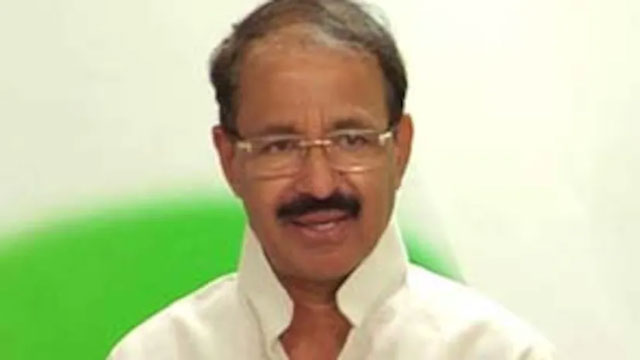Daijiworld Media Network - New Delhi
New Delhi, Apr 12: In the aftermath of violent clashes and arson in West Bengal's Murshidabad district, senior Congress leader Rashid Alvi came out strongly against the BJP, accusing the ruling party at the Centre of provoking unrest through interference in religious matters.
Referring to the escalating tensions over the Waqf (Amendment) Act, Alvi criticized the central government’s approach, calling the law “an intrusion into the religious affairs of Muslims.”
“Peaceful protests turning violent is a tragic outcome, but who created the spark?” Alvi asked.

“The BJP government must answer why it continues to interfere with religious matters under the guise of lawmaking. The Waqf Act is not seen as administrative reform — it is viewed as a direct challenge to the religious autonomy of a community.”
The unrest in Murshidabad, a minority-dominated region, has drawn national attention. While the BJP has pointed fingers at West Bengal Chief Minister Mamata Banerjee, accusing her of “inciting and supporting” the protests, Alvi shifted the blame back to the Centre.
“Violence is never justified. But when a community feels cornered and attacked, reactions are inevitable,” Alvi said, pointing to historical flashpoints such as the Golden Temple operation, the Denmark cartoon controversy, and the backlash over Salman Rushdie’s writings as examples of what he called "religious overreach" triggering unrest.
Responding to BJP's claims that West Bengal Police failed to control the violence, Alvi defended the state administration.
“It’s hard to believe that the police were inactive without reason. We know how BJP-ruled states often misuse police forces to serve political agendas. In Bengal, this is not just a law-and-order issue — it’s also about upholding the honour of the Chief Minister and the democratic rights of citizens.”
Alvi also lashed out at the BJP's hint at invoking Article 356 (President’s Rule) if the situation worsens, saying the party was deliberately framing the issue as a Hindu-Muslim conflict.
“This is not a Hindu-Muslim issue. The protests are aimed at the Union government, not a community. Many Hindus stand in solidarity with their Muslim brothers on this. The BJP’s old strategy of dividing the country along communal lines is once again on display.”
When asked if the Waqf Act unrest could escalate into something on the scale of the Golden Temple conflict, Alvi was cautious but firm in urging dialogue over suppression.
“No, I don’t believe it will reach that extreme. But the government has a duty — listen to the people, don’t silence them. Just like the farmers who peacefully protested for two years until the farm laws were repealed, Muslims have every right to voice their concerns. If the Prime Minister truly believes in ‘Sabka Saath, Sabka Vishwas,’ now is the time to show it — by withdrawing this law.”
In parallel, West Bengal CM Mamata Banerjee reiterated her opposition to the Waqf (Amendment) Act, declaring it would not be enforced in the state.
“We’ve made our stance absolutely clear — this law will not be implemented in West Bengal. So, what’s the need for unrest?” she posted on X.
As the debate intensifies, the Waqf Act continues to spark both political confrontation and social unease, with leaders across party lines urging restraint — but interpreting its implications through sharply different lenses.